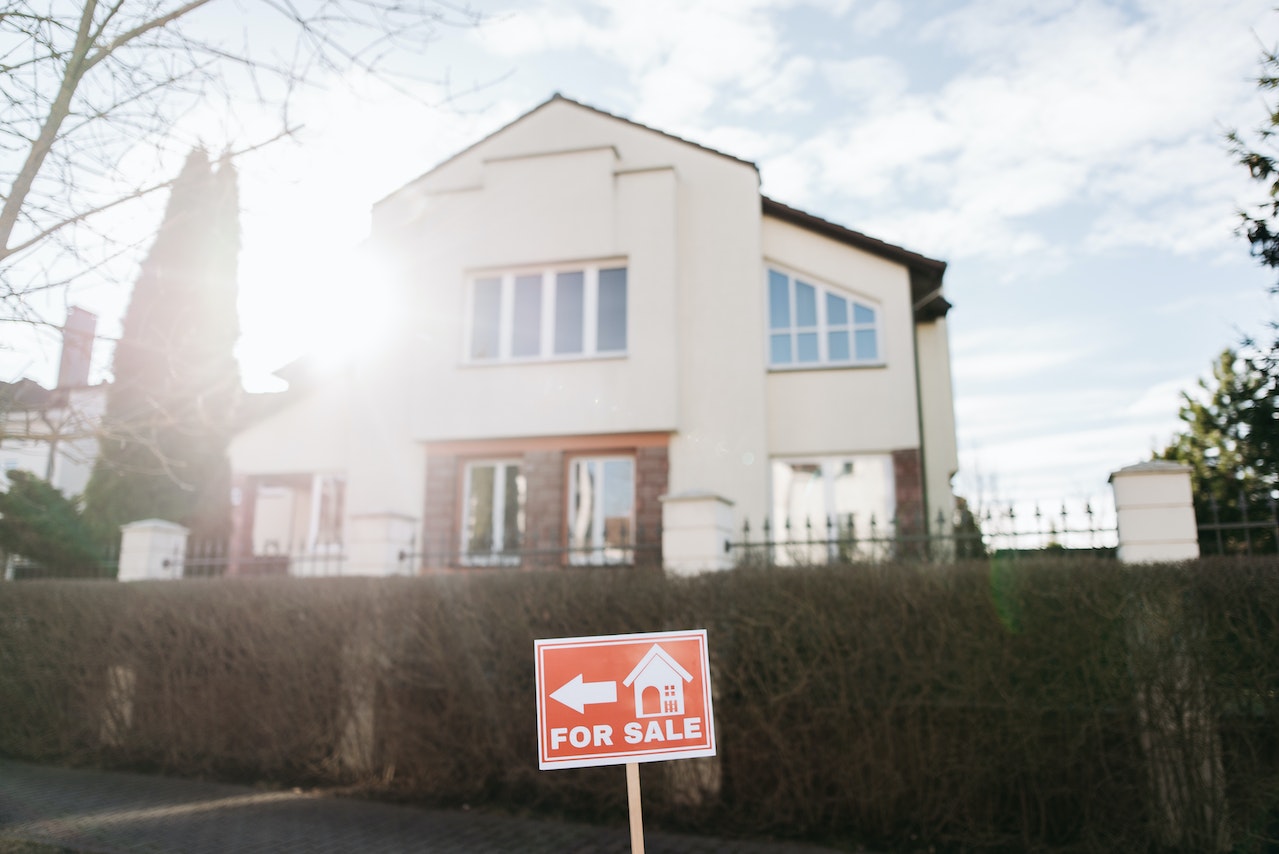Making an offer on a house can be a nerve-racking experience. Before deciding how much to offer on any given property, there are numerous factors to consider. Our articles aim to demystify some parts of the buying process and equip you with the confidence and knowledge you need to successfully purchase your dream home.
What should be considered first?
Before you decide to go all in the property purchase you should establish:
- Calculate your budget
- See how much you can borrow
- Research areas you want to buy in
- Work out your property size needs
Once you have worked out the initial steps you will be ready to proceed with the next steps – actively hunting your dream property and making offers.
How to make an offer on a house?
As a buyer, there are many things to consider. The property’s location, asking price, and size can all make or break it for you.
All first-time and seasoned buyers face a dilemma when buying a property – how much to offer? You surely do not want to be either too low for the offer to be rejected or too high. So here are our top tips on how to get the best deal for your money:
Know the market
Residential real estate is a competitive market. The buyers are generally buying a home with emotion rather than using financial acumen to base their decision. As a result, in a market which is super competitive, you will be more likely to overpay.
To avoid this, you need to do due diligence on how much similar properties in the local area are being sold for. To do that, first, you can start looking at what similar properties are in the area being listed for and how many active listings there are. This will allow you to gauge the supply and establish a low – high price range for the type of property you are going for.
Compare
Once you have a general sense of the local market. You then need to delve deeper into the sold prices and compare the achieved prices of similar properties to the ones you are looking to buy.
You can find out achieved prices by either looking them up on HM Land Registry or Rightmove sold prices.
Generally, you will want to look for similar properties which sold no longer than 6 months before and are within a maximum of 0.5 miles radius from your prospective home. This is basic criteria that chartered surveyors use to find comparable properties when assessing the value.
Know your financial position
Before you make an offer, check your finances. Find out how much you can afford to spend on your prospective home. The majority of lenders stress test affordability by applying a 45-50% rule which means that your annual mortgage interest and capital repayments cannot be more than 45-50% of your net annual income.
If you have a high salary then you will need a smaller deposit but if your salary is lower then you will need a higher deposit to afford the home.
Determine your affordability
Owning a home is different from renting. There are more hidden costs such as service charges if buying a leasehold or regular repairs and maintenance on a freehold property which buyers tend to overlook.
You need to consider how much disposable income you have left after paying the mortgage, upkeep, bills and council tax. If you are left with 5-10% of disposable income after all monthly costs and you still intend to buy it can be a recipe for disaster. Some UK banks recommend that your financials should be set up to follow the 50/30/20 formula. Essentially do not buy a property you cannot afford. Instead aim to buy something within your budget to build equity and sell in the future when you can comfortably afford to purchase a property which ticks most of your boxes.
How do mortgages work?
A mortgage is a loan you take out to buy property. The lender who offers a mortgage secures a charge against the property in the event they have to repossess. In the UK home buyers often borrow 80% – 95% of the property value and put down a 5% – 20% deposit.
There are two types of mortgages: fixed-rate and variable. It is often recommended to obtain a fixed mortgage rate as variable rate tend to be more expensive. However, being on a variable rate allows greater flexibility such as selling the property or changing lenders without incurring early repayment charges.
Most banks in the UK will lend at about 4-4.5 times your annual salary meaning that if your salary is £100,000 most banks will likely offer a mortgage of £400,000 to £450,000.
Why obtain a mortgage agreement in principle?
While it’s tempting to jump in, you’ll want to ensure that you obtain a mortgage before making an offer on the house.
Before committing yourself to buying the property you need to get pre-approved for a mortgage by obtaining a mortgage agreement in principle. The mortgage agreement in principle will detail the maximum amount you can borrow given your financial position.
Vendors will also view you as a stronger buyer if you can attach your mortgage agreement in principle together with the offer.
Check the condition of the property you are about to make an offer on
Before making an offer on a property, it’s important to check that it is in good structural condition and there are no hidden defects. Buying the property and then learning about all issues upon moving in can be devastating to your finances. If you are buying an old property built earlier than 30 years ago getting a survey is always recommended. Even modern construction properties tend to have defects which can cost a lot to remedy.
Hire a surveyor
Obtaining a home survey by a chartered surveyor will allow you to make a better informed decision about the property you are purchasing. The survey is designed to capture defects and report on the internal and external condition of the property.
Once the survey is completed surveyor will provide you with a report which contains comprehensive findings about the property’s condition.
In the majority of cases, buyers instruct the surveyor when their offer on a house has been accepted.
Be in a good position to buy immediately
The best position you can be in when buying a property is when you are chain free, this means you are not, at the same time, buying and selling your own property. It is often the case that sellers will prefer buyers which are not in a chain.
Make a strong first offer
When you make an offer in writing you need to ensure that it is fair if you want to build a good rapport with the vendor. Extremely low offers without further explanation can cause immediate friction with the vendor who may then view you as an opportunistic buyer.
Instead, when you make an offer you should send it together with reasons supporting your offer.
How much should you offer?
Depending on the market conditions, area and property condition, the estate agents in most cases list properties at a premium over their actual market. As such, you need to remember the due diligence you completed on similar property sales and compare it against your desired property’s asking price.
If similar properties are going for less, then you should make the offer under the asking price. If many similar properties are selling at their asking prices, then you will want to offer at or slightly above the asking to see how the vendor responds.
If the vendor rejects your offer, you should consider increasing to the level you feel is still reasonable. It is not recommended to enter a bidding war with other buyers as then you will most certainly be overpaying.
Should I offer below the asking price?
If you are buying in a seller’s market where there are only a few properties available then making a low offer could cause you to lose the property to other buyers.
Always aim to make an offer which seems fair when taking into account the property’s condition and market factors in the local area.
Don’t concede too quickly
Many people make the first mistake in negotiating: they concede too quickly. This often happens when you make the offer at a maximum of your available budget and then have no further funds to increase an offer.
You should aim to make an offer which is under your maximum budget and leave room for negotiations.
When negotiating with the property seller, it helps to have a few key pieces of information.
- What is the property’s worth
- What are sellers’ needs
- Other offers on the table if the estate agent discloses
When making an offer on the property it is always worthwhile asking the estate agent if there are any other offers on the table. Sometimes estate agents may choose not to disclose offers. Also, try to find out the seller’s situation and why they are selling. If they are selling because of financial difficulties likely they will be more amenable to lower offers resulting in a quick sale. Also, check whether sellers are in a chain as this can cause long delays.
Consider using a buying agent
If you feel overwhelmed with trying to find a dream home and undertake due diligence, consider using a property agent. The agent which specialises in advising buyers can provide huge value such as:
- source the property which meets your requirements
- provide due diligence and valuation advice
- use their professional network for cheaper quotes and better service
- their professional network will be made of solicitors, tax planners, surveyors, removal companies and contractors
The popularity of using buying agents is rising in the United Kingdom. A buying agent can greatly assist foreign buyers who have no boots on the ground.
What happens when an offer is made?
If you made the offer via the seller’s agent they are legally bound to disclose it to their client for consideration. Generally, it should not take more than a week for the seller to consider your offer and respond.
What is gazumping?
So, you have found a home you are sure about, one that ticks all the boxes in a great location. You put in an offer, and it is accepted. But, unfortunately, the excitement quickly goes away when sellers decide to withdraw and proceed with the higher offer they just received.
This situation is called gazumping. Sellers can essentially withdraw at any time for any reason before the exchange of contracts.
Is my offer legally binding?
Your offer is not legally binding until you exchange contracts. Therefore as a buyer, you can pull out of the transaction for any reason before the exchange of contracts happens and this is perfectly legal.
Can either seller or buyer pull out after the exchange of contracts
After contracts have been exchanged, if the seller pulls out, there will be financial implications they are legally bound by the contract to complete. If the buyer decides to pull out after the exchange of contracts they will lose the deposit which is usually 10% of the purchase price and can be liable for other financial losses incurred by the seller.
How to reduce chances of being gazumped
There are several things you can do to reduce the risk of gazumping.
Quickly advance the conveyancing
Getting the legal conveyancing moving is important, as this will bring you closer to exchange and make it more difficult for someone else to gazump you.
Ensure that mortgage valuation is booked quickly
Often buyers tend to leave booking mortgage valuation for later. This is often a mistake as there is a shortage of surveyors and waiting times can be several or more weeks. Therefore, once your offer has been accepted you should book the valuation.
Request the seller to take the property off the online marketplaces
If the offer was made and accepted by the seller, it’s important to ensure the property is not listed on online property portals or marketplaces anymore. If they are, ask them to remove it.
If they refuse, pay attention and talk to the seller’s estate agent to see if there are any other offers on the table or if they’re simply waiting for a better offer. If that’s the case, reconsider the deal or be prepared to fight of attempts of gazumping by offering more.
Monitoring the status of the transaction
First, it’s important to closely monitor the status of your transaction. Do not assume that solicitors and other parties will be motivated to quickly converse and close the transaction. Therefore, obtain regular updates from your solicitor and keep in touch with the seller’s agent and chase when necessary.
If you can buy with cash
If you are then a cash buyer then the chances of being gazumped are relatively low. Sellers will often prefer cash buyers over buyers with mortgages due to less legal work required and cash transactions taking much less time.
What to do once the offer is accepted?
By now you should have obtained an agreement in principle from your broker, if not then get a hold of this at once.
If your offer has been accepted then you should immediately proceed with instructing the solicitor and obtaining a survey on the property.
If the survey flags considerable defects which you feel require sizeable expenditure do not hesitate to renegotiate a lower price with the seller.
What to do if the offer is rejected?
If your offer has been rejected try to find out the reasons from the agent. If sellers wanted a higher offer on a house check whether your budget allows this. Also, ensure that the higher property price is worth it before making a higher offer or your final offer.
Sometimes sellers may prefer other buyers who are not necessarily offered more than you such as cash buyers, chain-free buyers or buyers with a higher deposit.
In conclusion
As a buyer, if you find the home purchase process daunting, it can be a good idea to get professional advice to help guide you through the process even before you start house hunting, especially if you’re a first-time buyer. Find out what options are available and make your decision from there. For example, first-time buyers can benefit from subsidized home buying schemes such as shared ownership or help to buy.
Try to be rational and don’t be rash or hasty; you are planning on spending a significant amount of money on a home, so take your time to find the property which is right for you.
Ticking all boxes when house hunting can be hard when you have a limited budget. Do not overexpose yourself by buying a property you can barely afford. It makes more financial sense to aim for a more affordable purchase to build equity and upgrade in the future.
The home buying process can be relatively straightforward if you choose the right professionals to act for you in your purchase.
If there are any legal issues or defects in the property do not hesitate to renegotiate the price with the seller.




